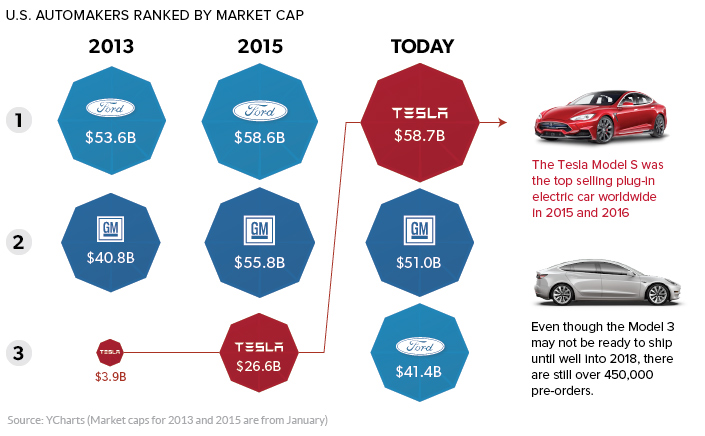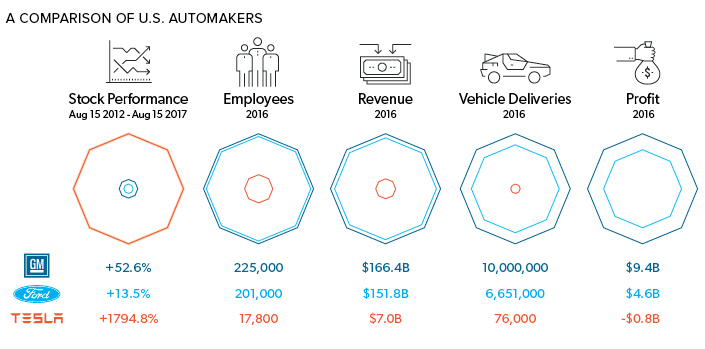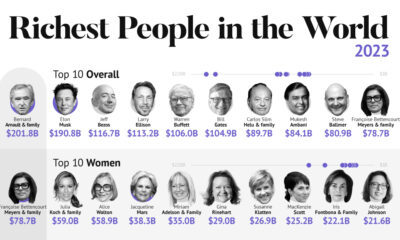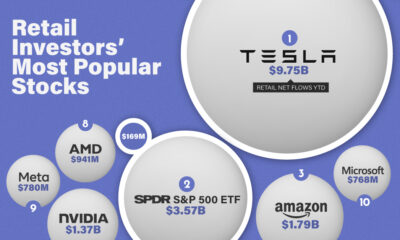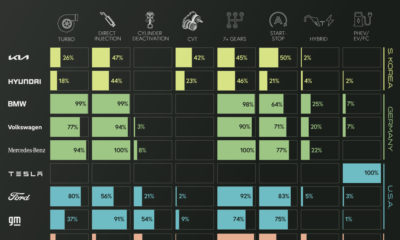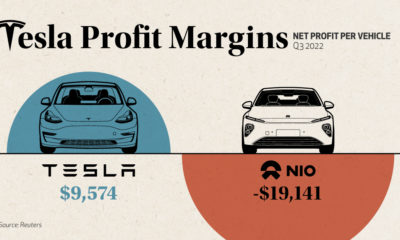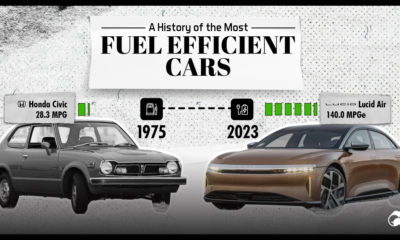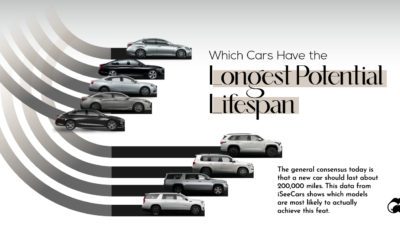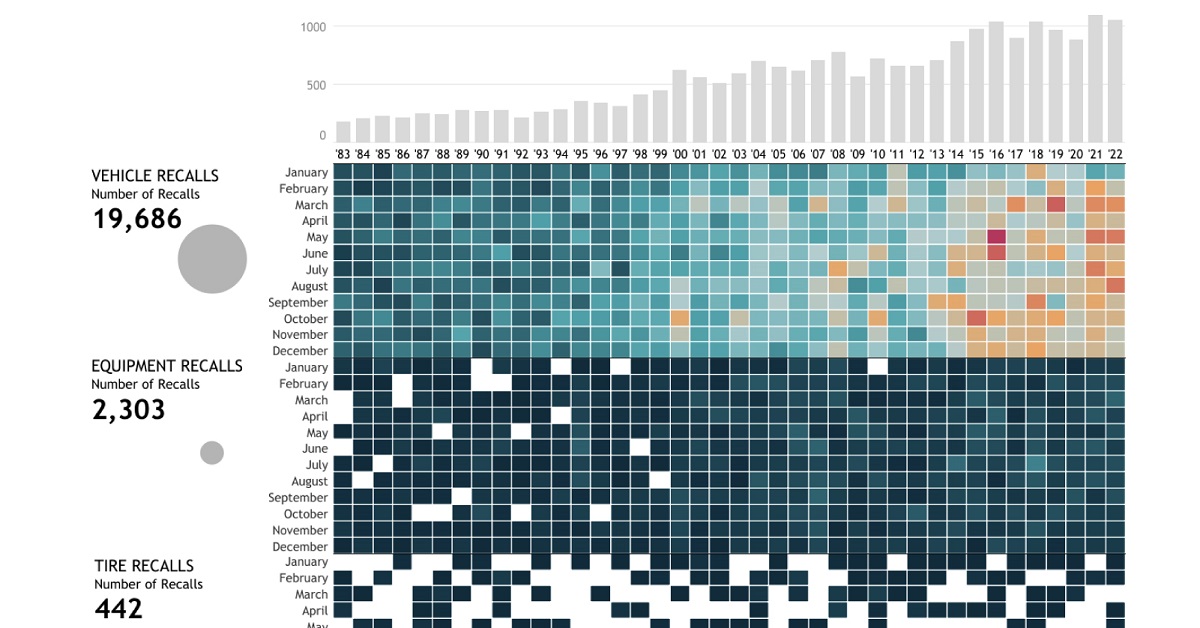It’s been another breakout year for Tesla. Over the course of 2017, the company’s market capitalization has soared beyond those of major manufacturers like Ford, GM, BMW, Honda, and Nissan. This thrust can be partly attributed to the company’s Model S, which reigns supreme as the top-selling plug-in electric car worldwide in 2015 and 2016. But more importantly for Tesla, this massive momentum is based on the company’s much-anticipated future performance. Investors and analysts eagerly anticipate progress as the company ramps up production of the more affordable Model 3, and many also strongly believe that Elon Musk brings an “X Factor” that could translate into future returns. In today’s charts, we look at Tesla’s ascent in valuation to become the #4 ranked automaker globally, and also the #1 maker in America. We also show why the value assigned to Tesla’s astonishing valuation may be premature, at least based on conventional metrics.
Tesla’s Rapid Ascent
In the opening months of 2013, Tesla was just starting to plan deliveries for its Model S. At the time, the company was worth a mere $3.9 billion – just 7% of the value of Ford. Since then, Tesla’s value has skyrocketed to make it the most valued auto company in North America:
Despite only producing 76,230 vehicles in 2016, Tesla is now the biggest of the “Big 3” – and this puts a lot of pressure on the company to live up to the vast expectations held by investors and media.
The Speculator’s Gambit
With so much hype and value assigned to expectations of future performance, Tesla and its enthusiastic investors are in a potentially tough spot. Even though it is the most valued car company in the United States, Tesla is much less impressive by more conventional metrics:
Here’s another look, this time showing Tesla’s metrics as a percentage of GM’s: Tesla is producing less than 1% as many cars as GM, but is worth more in market value. That’s not to say that Tesla will not ultimately live up to expectations – but it does put into perspective the risk of banking on these future returns. on These faulty airbags, installed by 19 different automakers including BMW and Toyota from 2002 to 2015, can explode when deployed and have led to numerous tragic accidents. Their recall affected 67 million airbags (including Honda’s vehicles above) and has been known as the largest safety recall in U.S. history. Over the past four decades, there have been over 22,000 automobile recalls in the United States. In this interactive piece, Chimdi Nwosu uses data from the National Highway Traffic Safety Administration to visualize the types of automobile recalls over the past 40 years, the companies with the most recalls, the components that were recalled the most, and, most importantly, their impacts on people.
Breaking Down U.S. Automobile Recalls
Whether a recall affects specific vehicle components, equipment, or vehicles as a whole, it affects the lives of millions of automobile users. When combined, these numbers ramp up exponentially. The U.S. alone has seen a total of 22,651 recalls over the past 40 years, impacting more than one billion people. Almost 72% of these people were affected by nearly 20,000 vehicle recalls, while around 19% were impacted by over 2,000 equipment recalls during this period. Comparatively, the 442 tire recalls and 220 child seat recalls affected significantly less, but still a total of 96.9 million people. While an inconvenience to many, the recall of these faulty vehicle parts saves many more from unfortunate incidents that may have occurred if left unchecked.
Minor and Major Recalls
One of the largest recalls in history took place in 2014 when General Motors—the manufacturer with the highest total of recalls in four decades—recalled millions of vehicles including the 2005-2007 Chevrolet Cobalt, 2007 Pontiac G5, and 2006-2007 Chevrolet HHR, amongst others. The reason for this recall was a faulty ignition switch that caused the vehicle’s engine to shut down while driving, disabling safety systems including airbags. This fault led to the death of hundreds of people. However, not all recalls are this severe. BMW, for example, recalled just four vehicles in December last year because one of the four bolts in the driver’s backrest was not attached properly. Similarly in 2020, Ford recalled some of its vehicles due to a faulty door latch. While this recall inconvenienced over two million users, it was less likely to lead to severe consequences if left unchecked.
A Safer Future?
The number of automobile recalls over the past four decades has seen a steep rise. As have car safety standards. While recalls could hint at the risks involved in taking your car out for a drive, they also indicate manufacturers taking responsibility for their faulty commodities, and affect a very small percentage of vehicles on the road. To improve automobile safety, the NHTSA proposed a New Car Assessment Program in 2022, which provides vehicle users with safety ratings for every new vehicle. This five-star safety rating program rates the vehicles’ safety features, crashworthiness, and resistance to rollover. With self-driving cars now also entering the mix, we need to stay informed about vehicle safety to keep our vehicles, our streets, and ourselves safe in the future.
